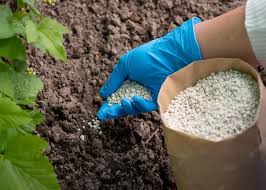
Dec . 19, 2024 15:34 Back to list
humic acid granules
The Importance and Benefits of Humic Acid Granules
Humic acid granules are a concentrated form of humic substances derived from the decomposition of organic matter in soil. These granules play a crucial role in agriculture and environmental management, contributing significantly to soil health, plant growth, and ecological balance. Understanding the properties and applications of humic acid granules can help farmers, gardeners, and environmentalists optimize their practices for better sustainability and productivity.
What Are Humic Acid Granules?
Humic acid is a complex mixture of various organic compounds that result from the microbial decomposition of plant and animal matter. When processed into granules, humic acid becomes easier to handle and apply while retaining its beneficial properties. These granules are rich in nutrients, providing a source of essential elements like potassium, phosphorus, nitrogen, calcium, and magnesium that are vital for plant growth.
Benefits of Humic Acid Granules
1. Improved Soil Structure Humic acid granules enhance soil structure by promoting the aggregation of soil particles. This leads to improved aeration, water retention, and root penetration. A well-structured soil environment allows for better penetration of water and nutrients, leading to healthier plants.
2. Nutrient Availability Humic acids actively facilitate the uptake of nutrients by plants. They chelate (bind) essential minerals, making them more accessible for plant absorption. This means that when humic acid granules are incorporated into the soil, they can help unlock nutrients that might otherwise be unavailable to plants, thus boosting overall growth.
3. Increased Microbial Activity Humic acid granules serve as a food source for beneficial soil microorganisms. By stimulating microbial activity, they enhance soil biodiversity, which is crucial for nutrient cycling and the overall health of the soil ecosystem. A thriving microbial community can also help suppress soil-borne diseases.
humic acid granules

4. Enhanced Nutrient Retention The application of humic acid granules improves the cation exchange capacity (CEC) of the soil. This property allows the soil to hold onto essential nutrients and release them to plants gradually, reducing the need for frequent fertilization. This characteristic also minimizes nutrient leaching, a common issue that leads to environmental pollution.
5. pH Buffering Humic acid granules can help stabilize the soil pH, making it less susceptible to drastic changes. This buffering capacity ensures that the environment remains conducive for optimal plant growth, providing a balanced nutrient profile.
6. Environmental Benefits The use of humic acid granules contributes to sustainable agricultural practices. They can reduce dependence on chemical fertilizers and pesticides by improving the natural fertility of the soil. This shift not only enhances plant health but also helps to mitigate the impact of agriculture on water bodies, reducing the risk of nutrient runoff and pollution.
Application of Humic Acid Granules
Humic acid granules can be applied in various forms and settings. Farmers often use them during soil preparation, mixing them with other fertilizers to enhance nutrient availability. Gardeners can use them as a soil amendment to improve garden beds, vegetable patches, and lawns. Furthermore, humic acid granules can be used in hydroponics and aquaponics systems, where nutrient management is crucial for plant health.
Conclusion
In summary, humic acid granules represent a vital tool for enhancing soil health and promoting sustainable agricultural practices. Their multiple benefits range from improving soil structure and nutrient availability to fostering microbial life and mitigating environmental impact. By embracing the use of humic acid granules, both professional farmers and home gardeners can contribute to healthier soils and more productive ecosystems. Incorporating these granules into regular soil management practices not only aids in plant growth but also fosters a more sustainable approach to agriculture, aligning with the growing global emphasis on environmental conservation and responsible resource management.
-
Premium 10 10 10 Fertilizer Organic for Balanced Plant Growth
NewsJul.29,2025
-
Premium 10 10 10 Fertilizer Organic for Balanced Plant Growth
NewsJul.29,2025
-
50 Pound Bags of 13-13-13 Fertilizer for All Plants – Bulk & Organic Options
NewsJul.28,2025
-
High-Efficiency 15-30-15 Granular Fertilizer for Healthy Crops
NewsJul.28,2025
-
15-30-15 Granular Fertilizer for Optimal Crop & Lawn Growth
NewsJul.27,2025
-
Premium 10 10 10 Water Soluble Fertilizer for Fast Plant Growth
NewsJul.26,2025
